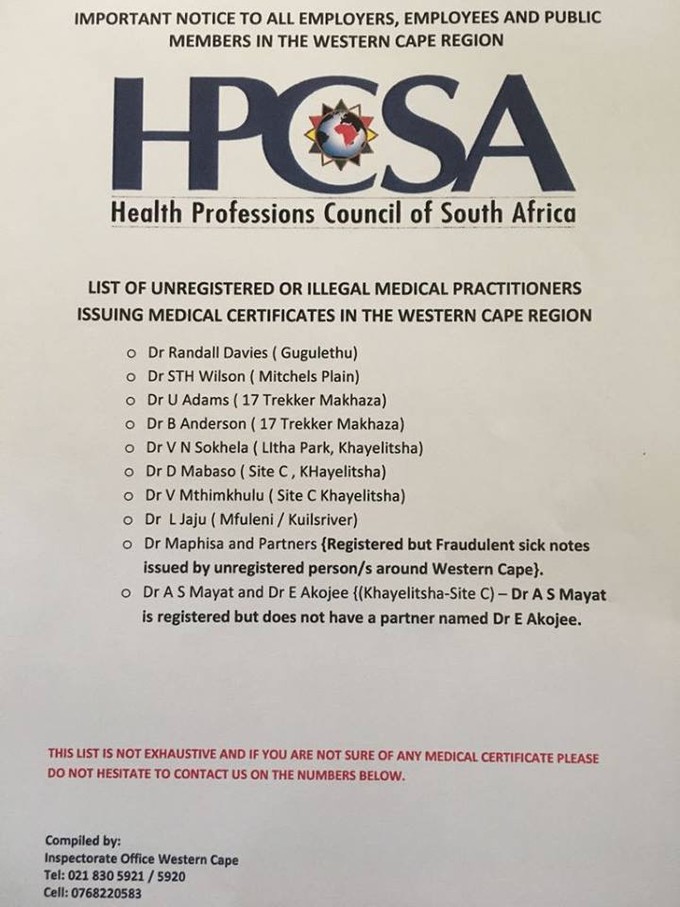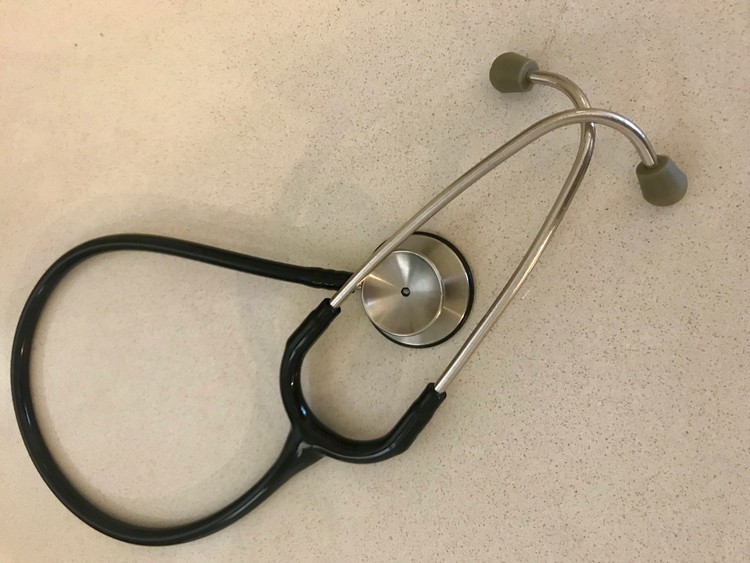Selling fake medical certificates is “big business” in Cape Town
Health Professions Council of South Africa releases names of bogus practitioners
A list of ten illegally practising or unregistered medical practitioners issuing bogus medical certificates for people to get off work in the Western Cape has been released by the Health Professions Council of South Africa (HPCSA). The aim is to create awareness among employers, employees and the public.
Spokesperson Priscilla Sekhonyana says the HPCSA has in its possession 28 fake medical certificates reported to the Cape Town office.
GroundUp reported in 2015 that fake medical certificates were being sold in Katlehong on the East Rand. Last week, the HPCSA released a statement saying during an inspection at the Lister Medical Centre in Johannesburg, eight people were arrested for practising illegally.
The selling of fake medical certificates is also a business in Cape Town. GroundUp tracked down three different people who were selling fake medical certificates, but only one would speak and only on condition of anonymity.
Operating from an informal settlement in Khayelitsha, Luyolo (not his real name) says selling medical certificates is “big business” and he has been doing it for many years.
“I sell medical certificates for R150, and I have a client base. I don’t just sell to anyone. I know my people and if ever I get a new customer, they have to tell me who from my clients they got my contact number and my client has to verify this,” says Luyolo.
Luyolo says he copies real medical certificates, with real doctors’ names and addresses, but with his own cell phone number in case the employer of the buyer of the certificate phones to check.
“I make my own medical certificates, copying a legitimate medical certificate from a legitimate doctor that I have visited. I have medical certificates for public and private doctors. I fill in the certificates myself. I stamp them, sign them. But then I place my cell number on them in case clients need me to verify,” he says.
Luyolo is employed full time elsewhere, but he would not say as what. He says he knows that what he is doing is illegal but it brings in money. He has used the income for his younger sibling’s education.
“It’s life, my sister! And this is done all over. It’s all about the money. I cannot afford most things with the salary I get, so this extra income helps me a lot,” says Luyolo.
According to Sekhonyana the HPCSA has established an inspectorate office which conducts inspections of registered practitioners and investigates allegations of illegal practice by unregistered people.
“The HPCSA is continuously conducting public awareness campaigns to ensure that the public is educated regarding illegal or unregistered practitioners and fraudulent sick notes. The Inspectorate Office works closely with law enforcement. Unregistered or illegal practitioners may be reported to the HPCSA through email [info@hpcsa.co.za], telephone [012 338 9300] or post,” said Sekhonyana.

Next: Eviction and the law: what the Constitutional Court says
Previous: Railway workers’ safety not our problem, police tell court
© 2017 GroundUp. 
This article is licensed under a Creative Commons Attribution-NoDerivatives 4.0 International License.
You may republish this article, so long as you credit the authors and GroundUp, and do not change the text. Please include a link back to the original article.



